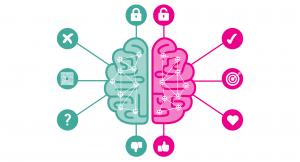Is Your Mind The Tap To The Fountain Of Youth?
How to set your mind on Happier Ageing
“There is a fountain of youth: it is your mind, your talents, the creativity you bring to your life and the lives of people you love. When you learn to tap this source, you will truly have defeated age.”
Sophia Loren
Optimism, and how we process stress, is a huge determining factor of our overall happiness and, in turn, our ability to maintain a positive attitude when faced with the need to seek additional assistance or home care services as we age or face disability. Each life stage brings with it different challenges. Older people or people living with disability may have greater hurdles to overcome. No doubt some people will have greater stresses and challenges than other. It is how we handle the stress, where we choose to focus our thoughts, and what kind of mindset we have that will give us the power to work through a challenge and see the possibilities ahead.

Fixed Mindset
We can have a mindset that is static or fixed. This is shaped by the idea that our abilities cannot be changed. It is the voice in your head that tells you you’re NOT creative, you CAN’T use technology, the challenge in front of you is TOO big to overcome. This fixed mindset leads to a desire to stay within one’s comfort zone. With a fixed mindset we have a tendency to:
Avoid challenges “I won’t try this because I might fall”
Give up easily “This is too hard” “I can’t do this”
See effort as fruitless or worse “Why should I bother?” “I am a burden to everyone”
Ignore useful feedback “This is good enough”
Feel threatened by the success of others “I am not going to age as well as my friends”
Thinking like this creates a deterministic view of the world – the idea that outcomes are determined by something beyond our control. As a result, we see people accessing home care with a fixed mindset who then plateau early and achieve less than their full potential.
Growth Mindset
On the other hand we can develop a growth mindset or a believe that our abilities can be developed. A growth mindset leads to a desire to learn and therefore a tendency to:
Embrace challenges “this will be exciting/fun/interesting”
Persist in the face of setbacks “I know I can get this if I keep trying”
See effort as the path to mastery “I’m getting better every time I do this”
Welcomes and learns from feedback “I’m glad you’re helping me through this”
Finds lessons and inspirations in the success of others “You did such a good job I can see how that might be something worth trying”
When meeting home care clients who have been able to develop a growth mindset, our caregivers tell stories of clients who are able to reach ever higher levels of achievement than both they and their families originally plan. As a result they attain a greater sense of independence and possibility and, of course, happiness.
In Your Hands
It is important to remember that your mindset is a spectrum. You do not only have one or the other, fixed or growth. How you choose to approach ageing or disability, and the idea that you may need home care, is largely in your hands. Psychologists originally relied on the belief that happiness was genetic and that we are born to be happy, or not. Research now tells us that even if you have ‘happy genes’ this is no guarantee of happiness.
Happiness is more complex but, put simply, it is a combination of 50% genetics, 10% life circumstances and 40% quite simply your choice – completely within your control.

You need to be able to hear that voice in your head. Is it telling you can’t, or you can? Does it encourage you to give up or try harder? Is it scared of the changes that might come if you admit you need help around the home? Or is it excited about the possibility that might come once you access home care services?
Once you are aware of your inner critic you can learn to control it. Changing how we react to situations, stressors and our perception of things that impact our mental health is the same as making changes to any habits in our life, such as diet and exercise. Habits of thought do not change without daily practice but with intentional work you will see change. We have explored this in our article on neuroplasticity and changing habits. The first step however is to hear your inner critic and know if you have a fixed or growth mindset. It’s so important that you bring an awareness to each day and look for opportunities to be positive and approach situations with a growth mindset whenever possible.
At Nurse Next Door, we are passionate about Making Lives Better. If you want to celebrate ageing click here to learn more about The Power of Happier Ageing or contact us today on 1300 600 247 to discuss how Nurse Next Door can help you keep doing what you love.
